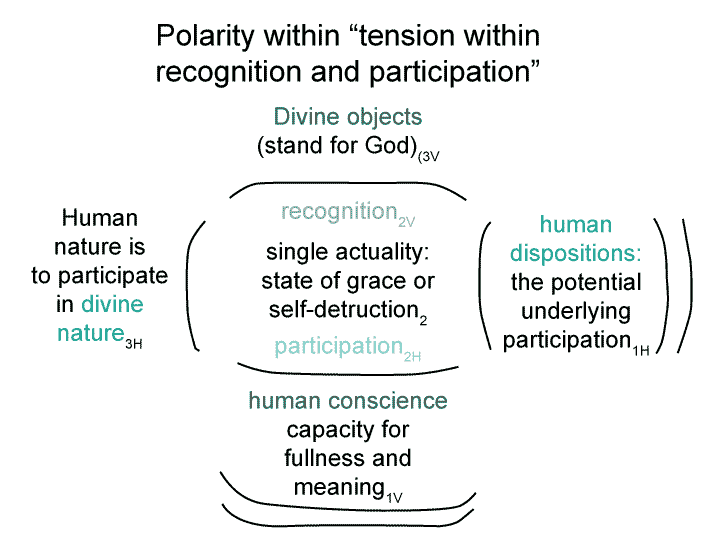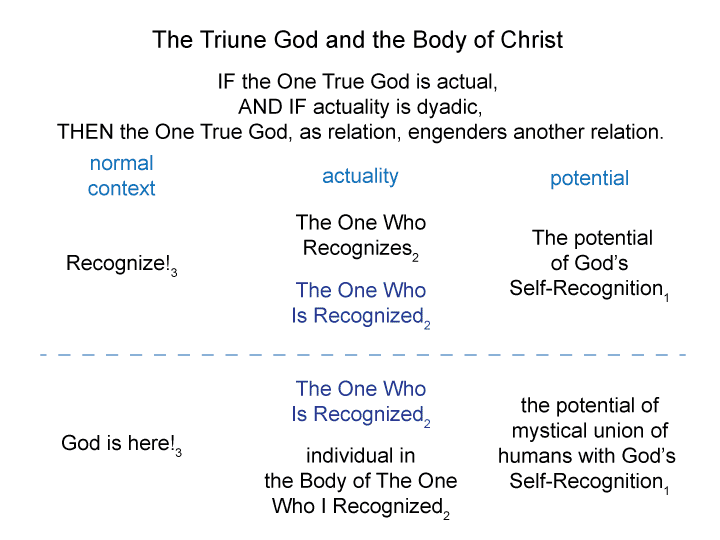Man and Sin by Piet Schoonenberg (1964) 2.1EY
Summary of text [comment] pages 69 and 70
[The saying goes: A picture tells a thousand words.
‘The intersecting nested form’ and ‘the nested form embedding the intersection’s single actuality’ are pictures. They have inspired many words.
Schoonenberg’s text is dense. He presumes that the reader shares a common cultural understanding. Decades (maybe, even centuries) of controversy are condensed in each line.
These controversies occurred before the dawn of the Age of Semiotics.
These controversies set the stage for the Age of Semiotics.
Nested forms present visual models for ways that ‘the diverse elements of Schoonenberg’s discussion’ could fit together. My speculations may or may not be on target.
So what is the advantage?
The target belongs to this sign-filled age of understanding.]


